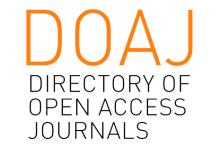Resource information
Cultural landscapes are a key resource for sustainable development. Among them, terraced landscapes are classified as “evolutive living” landscapes (UNESCO, 2012), an expression of the historical interrelationship between man and his territory. Currently many terraced landscapes are considered at risk because of the changed socio-economic conditions. The need for conservation and effective management of change of this exceptional heritage poses the question of identification of functions and complex values of the landscape, taking into account the needs, views and preferences of local communities. This study aims to identify the terraced landscape values and services based on the ecosystem services theory. It is addressed the issue of evaluation and mapping of cultural services in
terraced landscape, with reference to the site of the Amalfi Coast in Campania. The categories of services have been evaluated with the involvement of the local community through a semi-structured questionnaire administered online. The integration of multi-criteria evaluation and spatial analysis in GIS (Geographic
Information System) has led to the construction of maps of cultural services, which allow displaying the complex relations that link communities to the landscape. The tools for collaborative mapping (Volunteered Geographic Information – VGI) have been used for the construction of some of the maps of cultural services, integrating the results of the questionnaire with data related to the direct experience of the users.




